The huge moon was seen rising over Mow Cop Castle in Cheshire
REUTERS
Extraordinary pictures from Britain's ancient sites showed the moment the lunar phenomenon rose over the horizon
Don't Miss
Most Read
Trending on GB News
Britons - and amateur astronomers the world over - were left awestruck last night as the "biggest and brightest" supermoon of the year shone in the sky.
This month's full moon, called the Hunter's Moon, is the third of four supermoons in 2024 - and as it hung in the night sky on Thursday and Friday, appeared 14 per cent larger and 30 per cent brighter than usual.
Extraordinary pictures from Britain's ancient sites showed the moment the lunar phenomenon rose over the horizon and illuminated castles and follies in Somerset and Cheshire.
Skygazers gathered in Somerset to watch the Hunter's Moon rise over St Michael's Tower at Glastonbury, which was originally built in the 14th century, despite a raft of restorations and alterations.
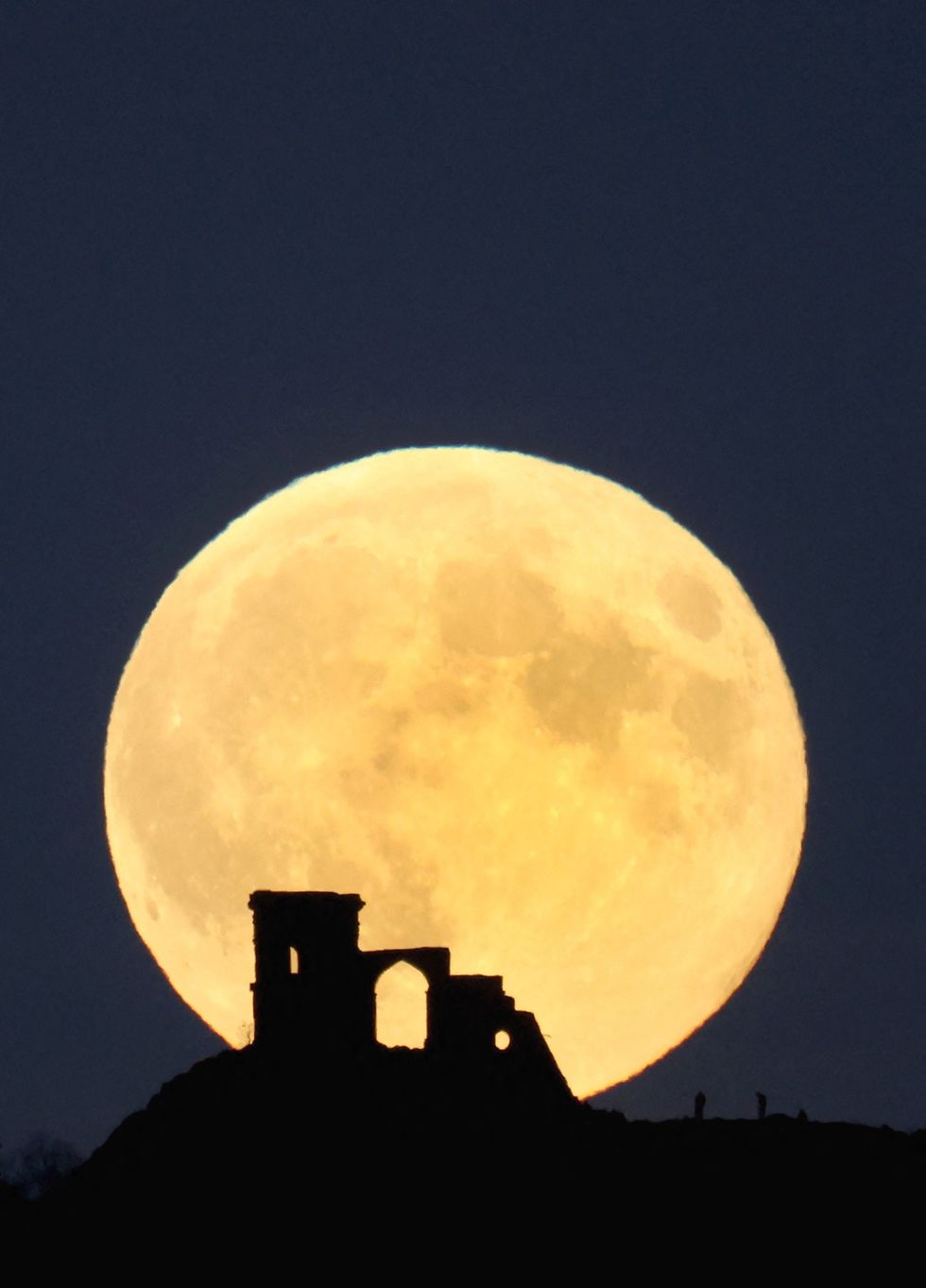
Dramatic images of the celestial phenomenon were seen at Cheshire's Mow Cop Castle
REUTERS
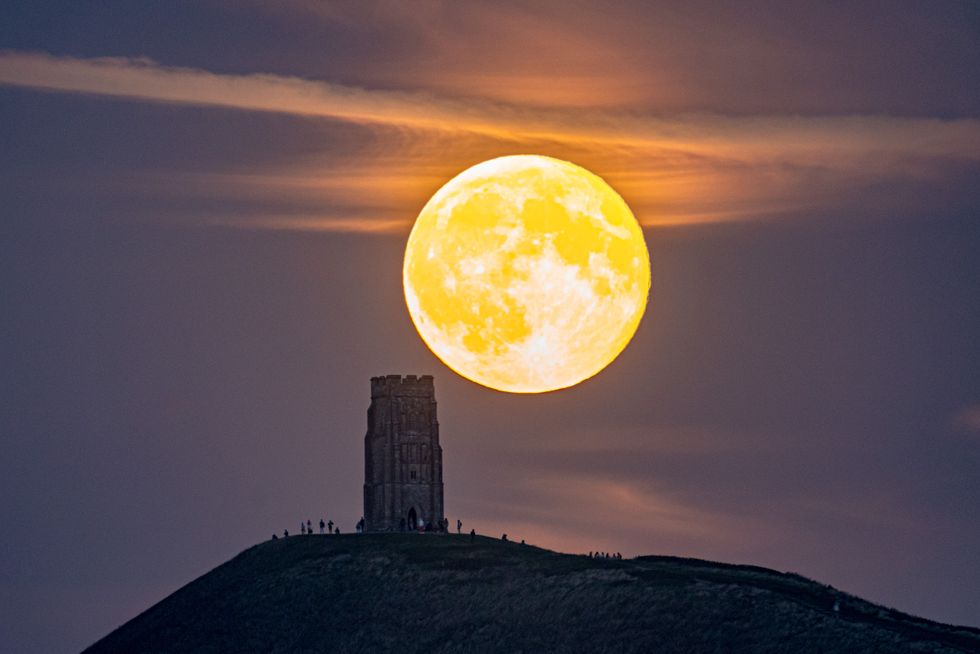
The supermoon lit up the skies at Glastonbury Tor's 14th-century tower
REUTERS
And more photos showed the moonrise around the world - from Germany to Australia.
Ahead of last night's stunning images, Daniel Brown, associate professor in astronomy at Nottingham Trent University, said: "The October full moon appears as the largest and brightest supermoon of the four this year, being 76km closer than last month's full moon.
"It is always exciting to notice changes in colour due to our atmosphere and explore the 'moon illusion' where the moon only seems to look huge given its proximity to the horizon, where there is context alongside buildings, trees and other features.
LATEST LUNAR NEWS:
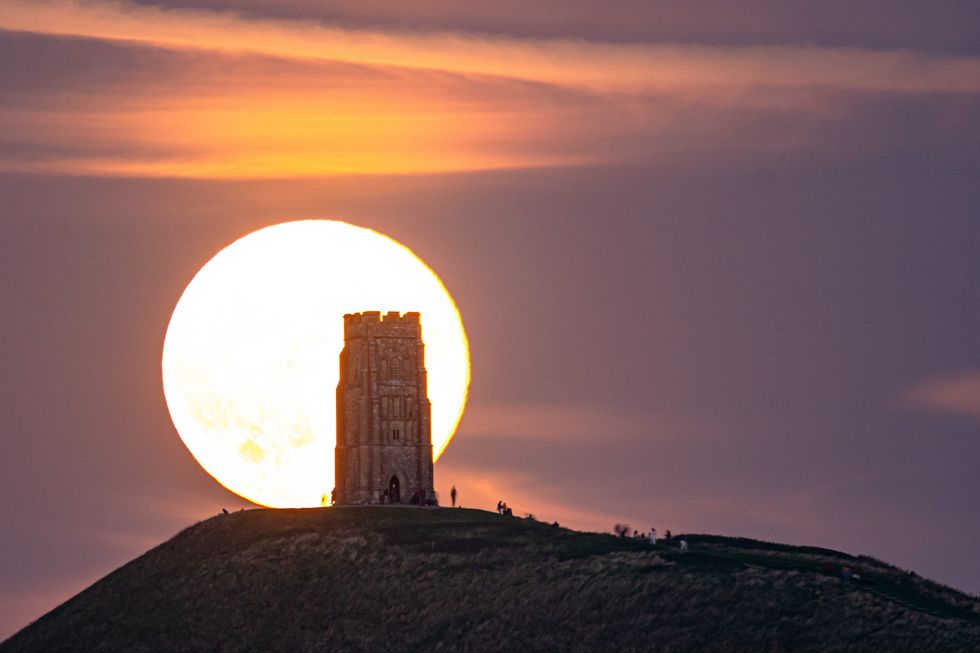
Revellers gathered to watch the moonrise yesterday evening
REUTERS
"If the moon is high in the sky and you don't have that context, it seems just a distant object and much smaller."
The term supermoon was coined by astrologer Richard Nolle in 1979 as either a new or full moon that occurs when the moon is within 90 per cent of its closest approach to Earth.
And, as long as the weather permits, those who missed last night's showing will have more chances to see the celestial phenomenon unfold.
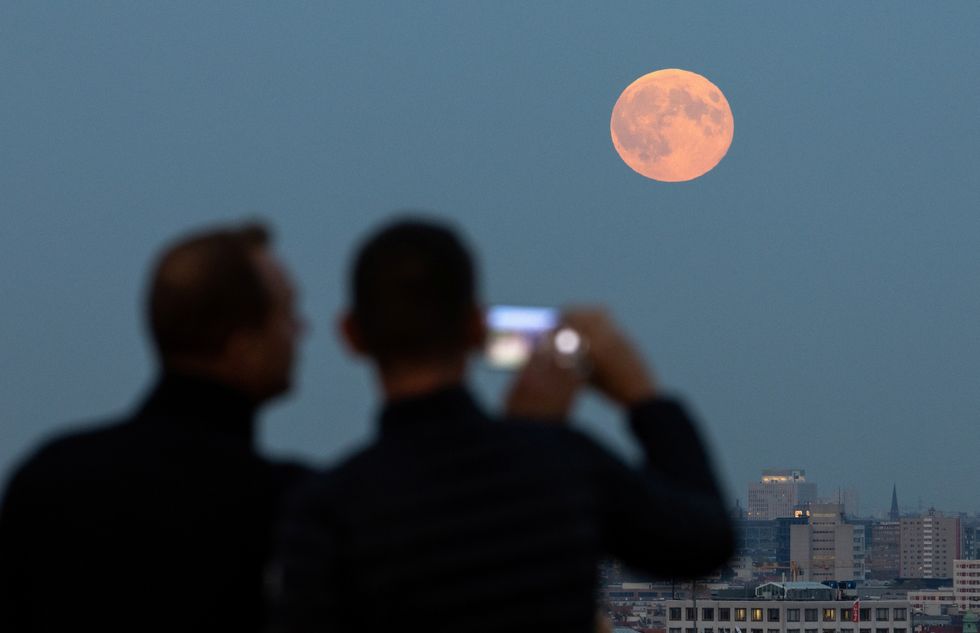
The supermoon was visible all over the world - like in this image from Berlin
REUTERS
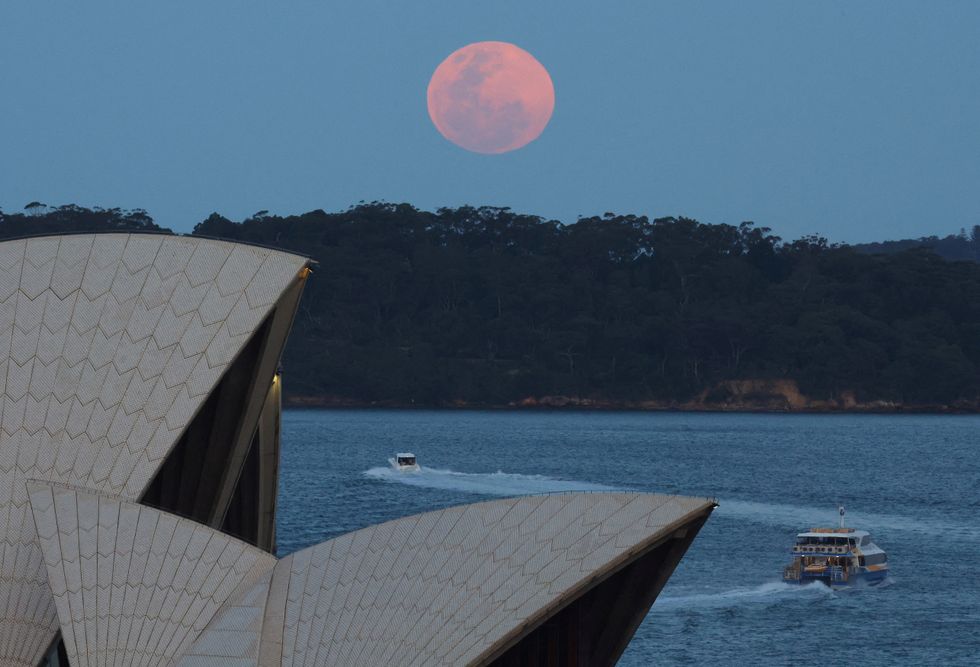
As Earth turned, the supermoon started its 'journey' in Australia, where it was seen as dusk fell in Sydney
REUTERS
The moon is set to stay full for three days, up to the morning of October 19.
But if keen stargazers miss the spectacle altogether, there is still one more supermoon to come this year.
The Hunter's Moon is the third of four supermoons in 2024, with the next forecast for November 15, known as the full "Beaver Moon".








